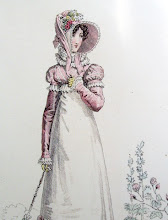Oh gosh, is that the time? For the last couple of months I've been thinking, 'I must do a blog post, I should just sit down and write a few words . . . oh stuff it, I'm too busy.'
Yes, between getting shingles (unpleasant), finishing my writing course, looking for work, coping with Christmas, and lying on the beach for a week, my writing has suffered a little. And as of next week I have a full-time job, which is good for the bank balance, but perhaps not so good for the novel.
So my belated new year's resolution is to write 100 words a day. It's not much, but hopefully it's achievable, and it adds up to 700 words a week, which is more than I've been doing lately! I was inspired while catching up on my blog reading after the aforementioned week on the beach - Lindsey at Dangerous with a Pen has resolved to do 100 words a day and kindly offered this button to anyone else looking to commit:
If I have time after grinding out my 100+ words a day, I'll be jumping on blogger to brag discreetly about my word count.
Happy new year everyone, hope it's a fruitful year for writing!
The Brittany Higgins saga
20 hours ago


